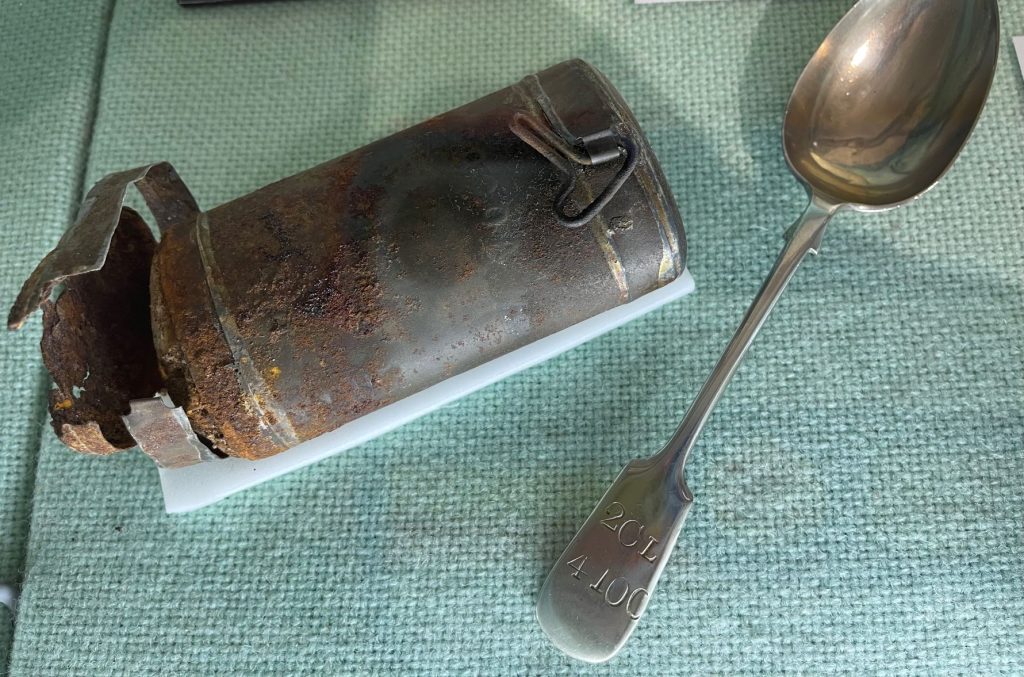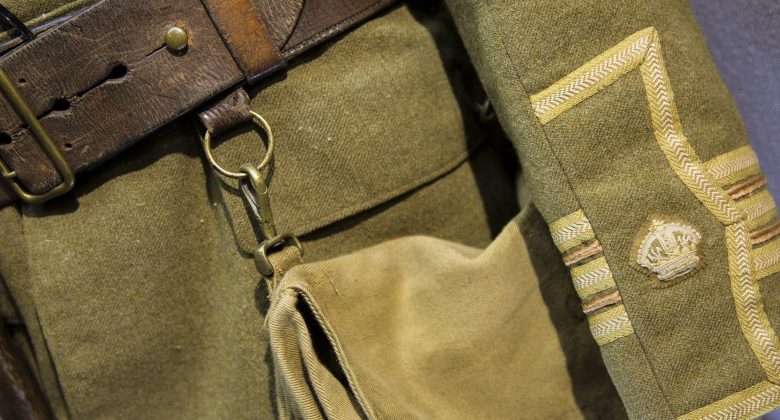Tobacco
Tobacco was highly prized by troops in World War One. Charitable organisations such as The Red Cross Society ensured that soldiers always received some in their rations. Smoking provided the soldiers temporary relief from the psychological stress of battle and the small luxury boosted morale and offered soldiers a moment to unwind with their comrades.
The Rum Ration
Soldiers were given a daily ration of extra strong (80%) rum, usually mixed with tea, coffee or cocoa. The rum helped to calm soldiers’ anxieties and gave them the courage to keep fighting. In 1922, during a parliamentary investigation into shell shock, the medical officer Lieutenant Colonel James S.Y.Rogers said “Had it not been for the rum ration I do not think we should have won the war”.
The Emergency Ration
The emergency ration pictured, was sometimes called an ‘Iron Ration’ is from the Boer War. It’s purpose was, that in dire circumstances a soldier would be ordered to open their emergency ration, containing enough food to sustain him for around 36 hours.

This ration contains a small amount of cocoa (chocolate) as a paste or powder in one end and a small amount of meat call ‘pemmican’. Pemmican is made from a mix of protein and fat made from meat and is long-lasting. The traditional recipe is Native American in origin and is still a feature of Native American cuisine today.
The ‘Iron Ration’ pictured and on display at Bodmin Keep, still contains its cocoa sealed within, over 100 years after it was made!
Watch this video where Verity our Collections manager shows some Boer War objects we have at the museum including the Iron Ration.

